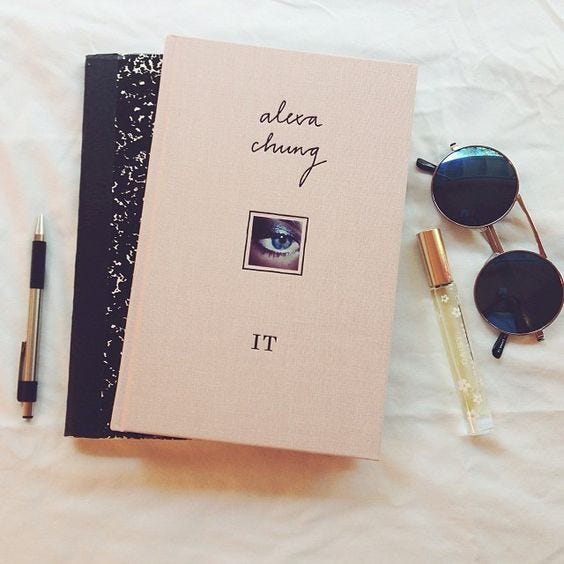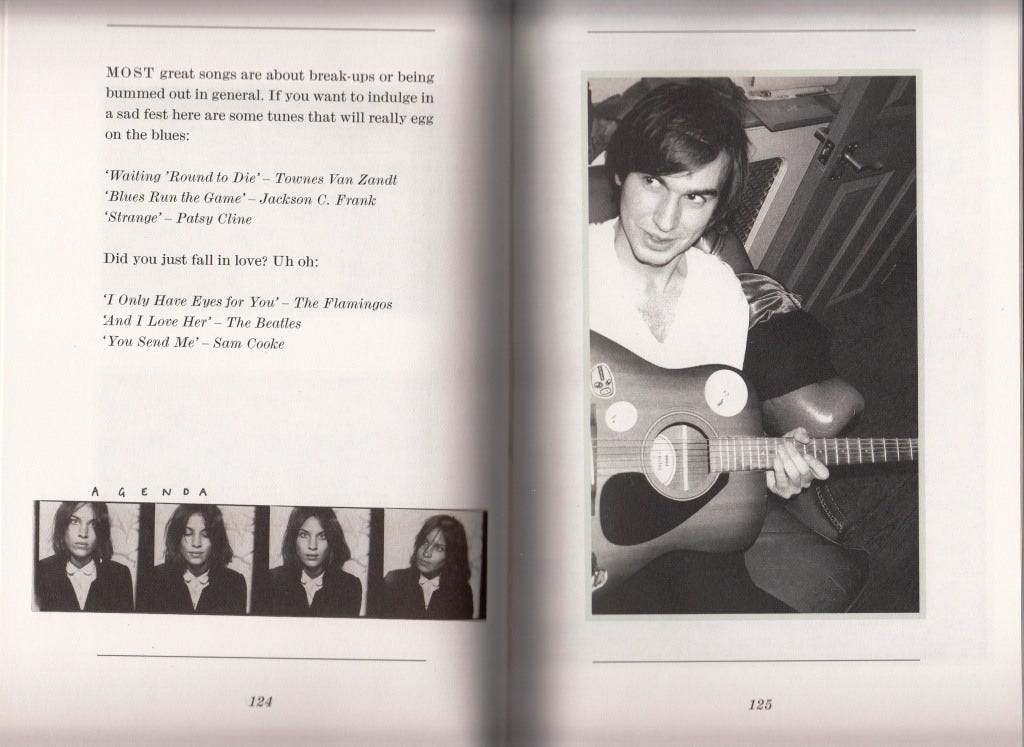Re-Reading "It" by Alexa Chung in 2023
where the “it” book stands 10 years later
The year is 2013. There are two things at the top of my Christmas list:
an American Apparel Cities Tote Bag
“It” by Alexa Chung
One day, archaeologists will dig up a copy of “It” and proclaim they found a first edition of the bible honored by the teenage girls of the Tumblr years. Written by the “it” girl of indie sleaze, the baby pink, cloth hardcover was destined to become iconic. We waited full of hope for notes on how she curated her androgynous style, how her laid-back, witty disposition landed her multiple TV host gigs interviewing musicians, designers, and celebrities, and possibly insight into her relationship with Arctic Monkeys frontman, Alex Turner (who could forget the note he wrote her and left behind in a bar). She was the mother of the Tumblr girl and, personally, I’ve never had a relationship with any mother that wasn’t a bit traumatizing.
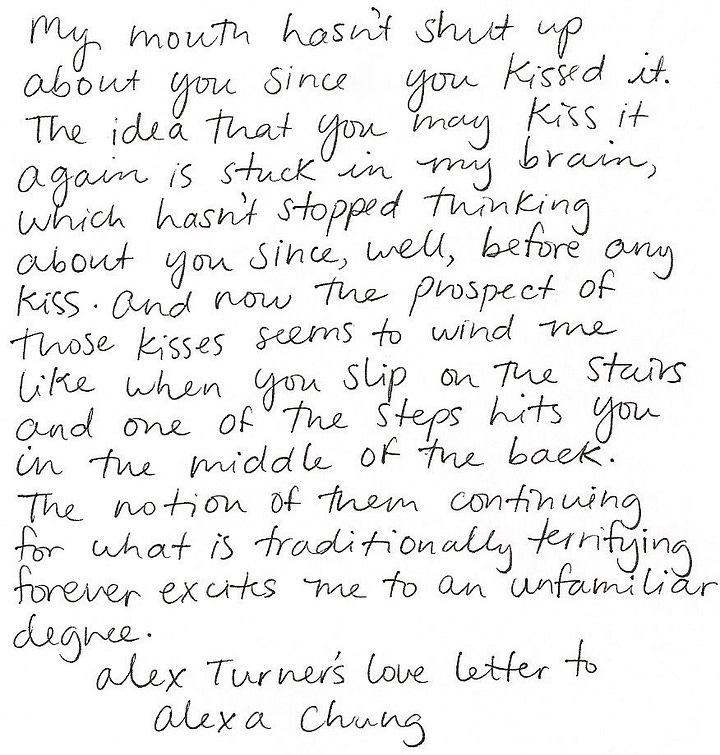
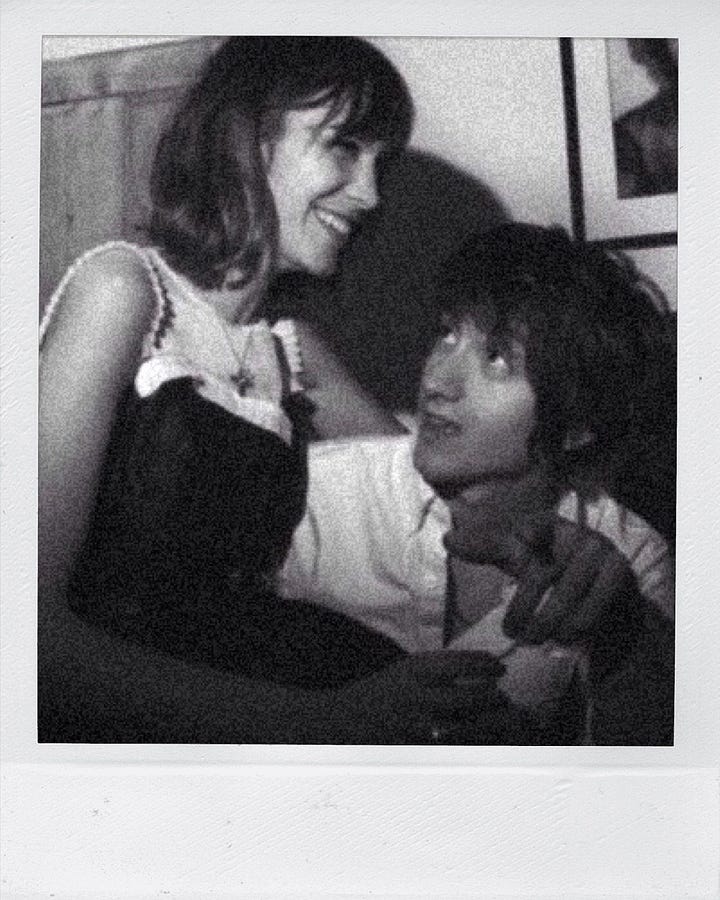
After its release, photos from inside the book were plastered all over Instagram and Tumblr. It quickly became one of the most photographed books of the era (source: my beautiful mind) and a source of inspiration for girls who wanted to mimic Chung’s style and aura.
Chung herself has said that the book was written on a whim; the title was meant to poke fun at the “It” girl status she’d been crowned and she wrote it through a series of emails to her editor.
“Honestly, it was as dumb as I wanted to have said that I've written a book before I was 30 so that was kind of the deadline in my mind. I was like ‘By hook or by crook, this will happen… I wasn't like ‘I really feel it's my duty to educate the younger generation on how to wear a leather jacket.’ Everything was a lot more frivolous and silly because it was a more innocent time, but I think it speaks to that era that it was a fairly apolitical, sort of nonsense thing.” - Chung quoted in W Magazine, 2022.
Someone with as much influence as Alexa Chung is incapable of creating anything that is apolitical. Especially considering at the time of its release, the book was worshiped by teenage girls, like myself, who were religiously taking notes and applying them to their own lives. Maybe that's the problem with this book. It wasn’t taken seriously when it was inevitably going to be taken seriously.
A review from 2013 describes it as “undeniably trite, and painfully easy to rip apart - but a nice introduction to indie style for teenagers.” The comments section is full of people clapping back, saying the review was “rude.” I’m almost positive all these comments came from 13-18 year old girls. The adults of the time already understood that this book was anything but profound, but since when do teenage girls ever care about the opinion of boring adults? I certainly didn’t. Even though I wouldn’t have listened, I wish someone would’ve told me to take Chung’s words as lightly as she had, because looking back I think it caused a bit of irreparable brain damage.
During my re-read I tried to keep in mind the fact that she’s British, a millennial, not a writer, and “it was a different time”, but in the end, none of those are a strong enough defense. My biggest issues with “It” are its pick-me undertones, “feminist” musings that are actually kind of anti-feminist, and vignettes that are a little too praise-y of shitty people like Woody Allen and Karl Lagerfeld.
Aesthetically, the book is gorgeous - a delightful item to flip through and use for decoration. However, after scrolling through the Alexa Chung tag on Tumblr and Pinterest, “It” clearly represents the more polished side of her style. If she was going to be even a little problematic, I kind of wish she’d included some of the more uninhibited photography from her indie sleaze era. Maybe with the return of indie sleaze, we can hope for an “it” girl memoir that’s a bit more candid.


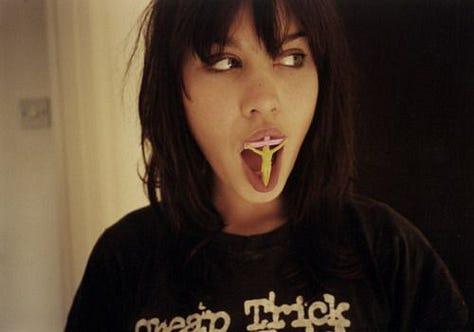
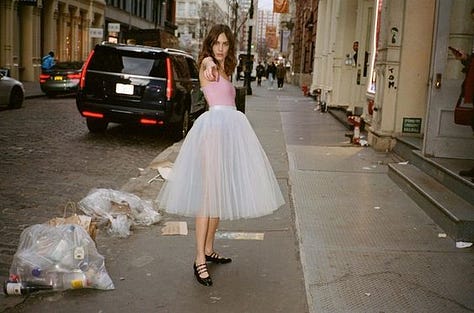
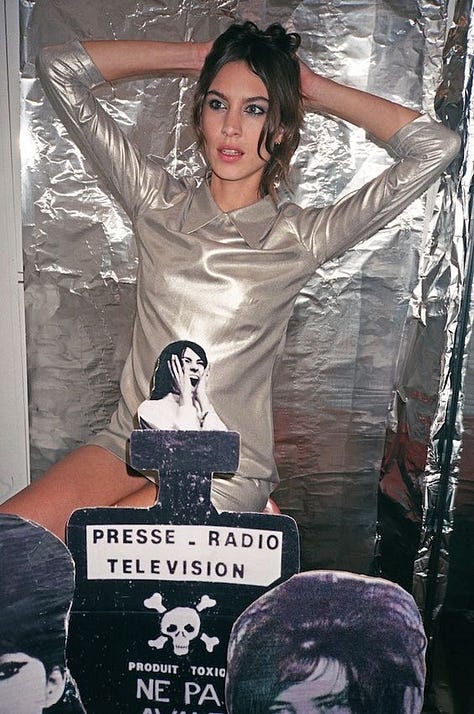
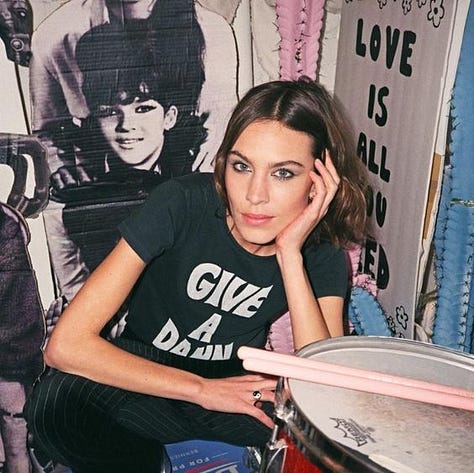
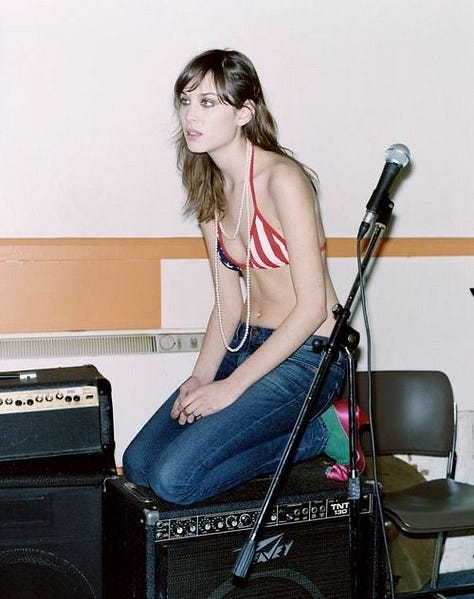


I won’t comment too much on the things that made me cringe because I understand Chung never claimed to be a role model and ultimately everyone can write and publish whatever the fuck they want. I will, however, list a few things and let you decide if it really was that cringe:
Within the first few pages, she writes about the first time she listened to the Spice Girls, “Sometimes it saddens me to think I was introduced to the concept of feminism by a manufactured pop group masterminded by opportunistic men, but hey ho, you gotta start somewhere.” Much like Chung, I’m a little ashamed to say I was introduced to feminism via this book.
There is an entire page dedicated to the quote, “Girl bands can dominate music but only one at a time. That is the rule. Don’t try to change it.” girl, what ?????
She never says “men” or “man” when talking about love interests and only refers to them as “boys.” Is that a British thing? If it isn’t, that is… worrisome. The only time she does say “man” is when she credits an “older man” with introducing her to “good” music, like the Smiths, The Cure, and Talking Heads...
There’s more, but I don’t want to be too much of a hater (even if this is a safe space for gentle hating.) I am both lighting a candle for the past version of myself that adored the writing in this book and laughing at myself because I thought this was some of the most insightful writing I’d ever read.
There were moments in the book that felt genuinely endearing, offering a glimpse into the emotional depth that Chung may not have intended to explicitly include. Like the pages dedicated to her best friend Misty Fox, which reminded me a lot of Orion Carloto's dedication to Enya Umanzor in “Film for Her”. I think it's likely “It” was on Carloto’s moodboard. Goes to show how “it” girls breed other “it” girls.
The most relatable part of the book, which I believe could have offered valuable advice to my fourteen-year-old self, was the reminder that “nobody goes through life without having their heart broken and one day you’ll wake up and it will be okay.” Hardly revolutionary, much like this blog, but valuable nonetheless.
I also had a tender moment with the memory of teenage me, navigating her first real heartbreak and stumbling upon Chung’s “breakup” songs and “Did you just fall in love?” songs. The playlist I made after reading this is still saved on my Spotify.
The reviewer I mentioned earlier was right, this book is actually great for learning about indie style, which I guess was the point. I remember immediately listening to every song and artist, watching every movie, and reading up on every person mentioned in this book:
Most, if not all, of the style references Chung lists:
The Spice Girls Liv Tyler’s character in Empire Records Annie Hall Lolita (book by Vladimir Nabokov and 1962 film) Margot Tenenbaum Edie Sedgwick Charlotte Rampling’s character in The Night Porter Ladies and Gentlemen, The Fabulous Stains (1982) Natalie Portman in Leon The Professional (1994) Winona Ryder in Heathers (1988) Wednesday Addams & Peter Pan collars Girls who skateboard, like Jodie Foster Kate Moss Anna Karina in Une Femme Est Une Femme (1961) Bridgette Bardot Jeremy Irons Mick Jagger George Harrison Jane Birkin groupies Faye Dunaway in Bonnie and Clyde (1967) My So Called Life (1994) Cat eyeliner - Cleopatra (1963) and Ronnie Spector Twiggy Natassja Kinski Brooke Shields eyebrows
I suppose that is the nature of the “it” girl book; plenty of photos of them, a few notes on the other icons that influenced their existences, and if you’re lucky, advice that universally applies to “not it” girls. I will keep it on my coffee table or display it underneath a candle for the rest of eternity because it reminds me more of myself during that time than of Chung. I think that is a sweet and unintentional byproduct of this book's release that is true for thousands of Tumblr girls entering their mid to late twenties. That’s really what keeps it special.
Sources
“It” by Alexa Chung
https://www.wmagazine.com/culture/alexa-chung-it-girlboss-tumblr-2010s-nostalgia




